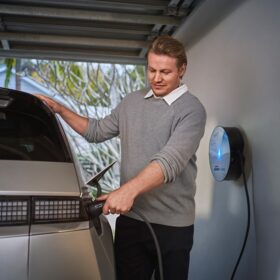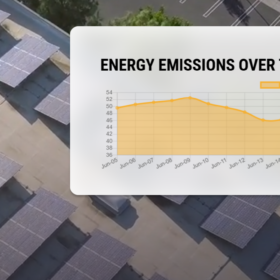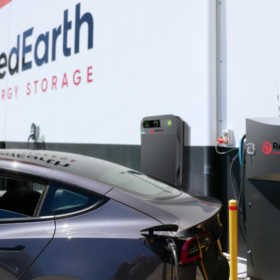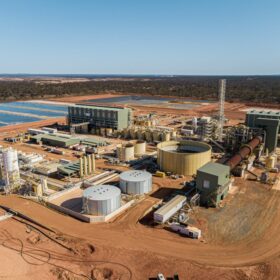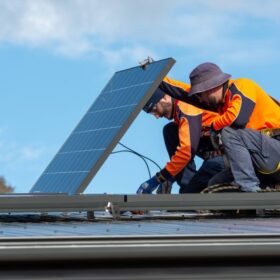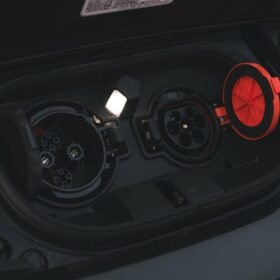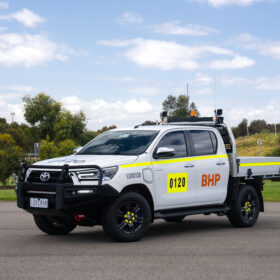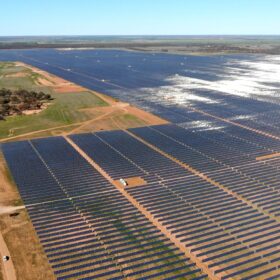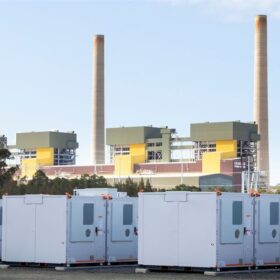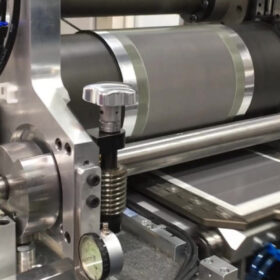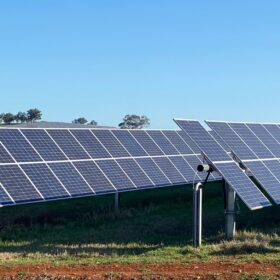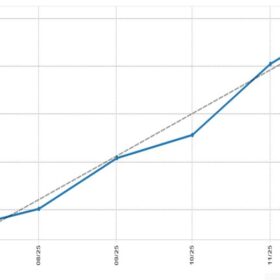Novonix secures supply deal with Volkswagen battery arm
Australian-listed battery materials and technology company Novonix has inked an offtake agreement for at least 32,000 tonnes of its synthetic graphite anode material with the battery manufacturing arm of global carmaker Volkswagen.
Ampol announces Australian-made home EV charger
Australian fuel giant Ampol has reached another milestone in its journey to expand beyond its roots as a petrol and diesel retailer, launching its own electric vehicle home charger.
Climate Council keeps tabs on clean energy momentum with new data website
Community-funded climate change communications organisation the Climate Council, has launched a website monitoring the progress and adoption of renewables like rooftop solar, batteries, and cleaner transport choices.
AMSL completes first free flight with electric vertical take-off aircraft
Zero-emission aircraft manufacturer AMSL Aero has successfully completed the first ‘free’ flight of its Australian designed and manufactured hybrid electric and hydrogen powered vertical take-off aircraft.
RedEarth reveals Australian-made plans for V2G tech
Queensland energy storage solutions provider RedEarth Energy Storage has partnered with German company ambibox to bring Australian-made vehicle-to-grid electric vehicle chargers to the market.
Lynas leads way with Australia’s first rare earths processing plant
Australia’s first rare earths processing plant has officially commenced operations with the $800 million Kalgoorlie facility expected to strengthen the nation’s place in the global critical minerals supply chain.
CER grid integration research project wins $1.7 million ARENA grant
The Australian Renewable Energy Agency has granted $1.7 million to a New South Wales university research project to better understand the impacts of integration of consumer energy resources into the grid.
Bowen gives vehicle-to-grid technology green light
The federal government says new standards have been approved that will allow vehicle-to-grid charging in Australia – enabling electric vehicles to not only charge but also supply power back to homes or the electricity grid – by the end of the year.
Newcastle turns tide on energy equity with bulk buy renewables program
The New South Wales coastal city of Newcastle is seeking expressions of interest from relevant service providers for its ‘bulk buy’ community renewables program to supply and install affordable renewable solutions.
Toyota teams with BHP to test electric HiLux dual-cab
With electric vehicle demand continuing to grow in Australia, Japanese auto manufacturer Toyota has revealed it will team with mining giant BHP to trial the “first ever” battery-powered HiLux dual-cab ute.

